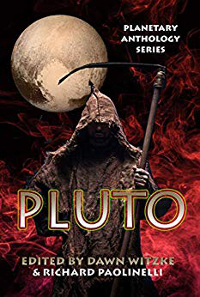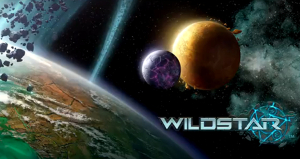Planetary Pluto Is Out

Buy it on Amazon (to give me and the publisher money). Review it on Amazon (to increase its rank). Read my story Ambit of Charon and be amazed by my geniusness. Go, now!
P.S. Sadly there's a "typesetting" problem, in that all my italics are shown as underlines. This was caught in proof but not corrected. A proper version should come out someday, but over that I have no control. For now please infer italics.
P.P.S. Update 7/24/22. The anthology is now out of print, but my story is available in my collection Stellar Stories, Vol. 1.
Read My Story in It!
Friday, November 29, 2019 4:33 pm

Buy it on Amazon (to give me and the publisher money). Review it on Amazon (to increase its rank). Read my story Ambit of Charon and be amazed by my geniusness. Go, now!
P.S. Sadly there's a "typesetting" problem, in that all my italics are shown as underlines. This was caught in proof but not corrected. A proper version should come out someday, but over that I have no control. For now please infer italics.
P.P.S. Update 7/24/22. The anthology is now out of print, but my story is available in my collection Stellar Stories, Vol. 1.
Claire Randall Is a Trollop and a Shrew
And Outlander Cheers, "You Go Girl!"
Tuesday, November 5, 2019 11:02 am
Outlander is a TV series about Claire Randall, former war nurse, who is living in Britain in 1946 when she is magically transported to the Scottish Highlands of 1743. Outlander supposes Claire to be our heroine. But Claire is not a heroine; and there are three things that confirm this.
A Mostly Happy Year
News of Story Submissions
Monday, September 23, 2019 12:06 pm
I submitted three stories to Stupefying Stories. Two were accepted. Weirdly I was more affected by the third being rejected. I am not a half-full kind of guy. Still, it was surely great to have two accepted.
So the story situation is as follows.
So the story situation is as follows.
Perfect Melancholy
 I was in the open beta for WildStar, an SF MMO, back in 2014. I then subscribed for three months. The game had lots of good in it; but it didn't hold me. Something fundamental was missing. And it was stupid hard. You really couldn't just log in and have fun. And the game's population collapsed so quickly that the open regions were always barren. I was alone in an MMO.
I was in the open beta for WildStar, an SF MMO, back in 2014. I then subscribed for three months. The game had lots of good in it; but it didn't hold me. Something fundamental was missing. And it was stupid hard. You really couldn't just log in and have fun. And the game's population collapsed so quickly that the open regions were always barren. I was alone in an MMO.
An Instrumental That Shouldn't Be Lost
Saturday, September 21, 2019 11:07 pm

In Which I Criticize the Great Stanislaw Lem
Just to Set the Internet Straight
Thursday, August 8, 2019 11:03 am
At least two people on the internet — let's call them Bob and Ted — have been dissuaded from reading Stanislaw Lem. That is a shame; not least because, as usually happens on the internet, they are reacting to something that isn't true.
Self-Publishing Is Euthanasia for Stories
Think Twice Before Consigning Your Art
Wednesday, June 19, 2019 2:59 pm
I am a caveman. I started writing in the typewriter era. Eventually PCs and word processing arose. The gatekeepers remained, however. You were published only if an editor took a fancy to you.
Vanity publishing? That was just tawdry. There was something genuinely vain about it. It was, as well, far too much a capital venture. You were essentially starting your own business.
Vanity publishing? That was just tawdry. There was something genuinely vain about it. It was, as well, far too much a capital venture. You were essentially starting your own business.
"Planet" Is What You Say It Is
Simply Use Pluto as a Minimum
Wednesday, June 12, 2019 12:07 pm
Regarding the demotion of Pluto as a planet, an astronomer once tweeted:
He's wrong, in any event.
"Planet" is not a designation like "baryon" or "lepton." There is nothing in the design of the universe that relies on some profound distinction between, say, a "planet" and a "dwarf planet." Sorry, but Pluto was a planet for 50 years. We said it was. We did not learn anything new about Pluto that would make it not a planet.
So, hey, Pluto is still not a planet. Actually, never was. We just misunderstood it for 50 years. Now, we know better. Nostalgia for Pluto is not a very good planet argument, but that's basically all there is. Now, let's get on with reality.I'm sure this guy thought he pwned the folks defying Pluto's demotion. There's a nastiness in his tweet, isn't there? Not surprising, considering his handle is @plutokiller.
He's wrong, in any event.
"Planet" is not a designation like "baryon" or "lepton." There is nothing in the design of the universe that relies on some profound distinction between, say, a "planet" and a "dwarf planet." Sorry, but Pluto was a planet for 50 years. We said it was. We did not learn anything new about Pluto that would make it not a planet.
© 2004-26 David Skinner · All rights reserved